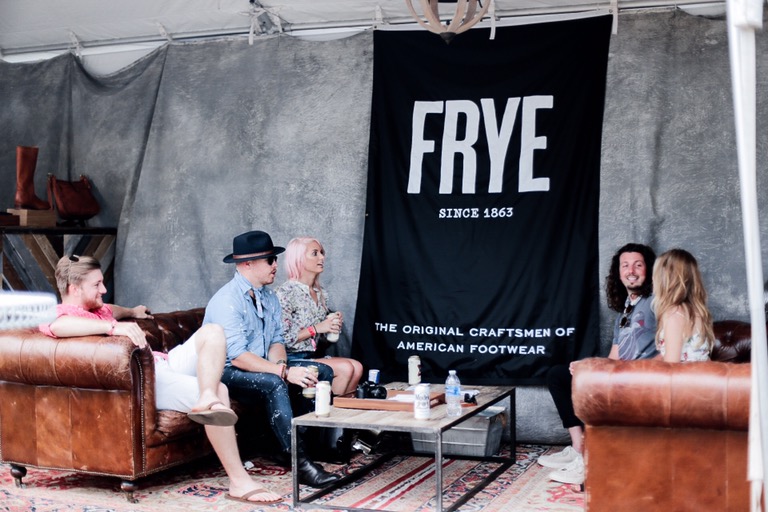When reports started coming out about the doomed Fyre Festival, which was originally billed as a "luxury" music festival and advertised by the likes of Kendall Jenner and Bella Hadid and which promised performances from Pusha T, Desiigner, Lil Yachty, Blink-182, and more, it became clear the whole thing had sounded too good to be true.
Billy McFarland, one of the masterminds behind the catastrophic festival and the owner of Fyre Media, has been hit with several lawsuits, arrested and charged with fraud, and been forced to place Fyre Festival LLC underinvoluntary bankruptcy. But Fyre Media is not the only company McFarland owned. He is also the CEO of Magnises, a company he founded prior to Fyre Media, that functioned as a members-only concierge service. However, documents acquired by VICE News suggest McFarland has been mismanaging that company’s finances, too, by running what appeared to be a complicated concert ticket scheme.
One of the benefits that Magnises offered its members was discounted concert and event tickets. But credit card records suggest that McFarland was buying the tickets from third-party distributors like Ticketmaster, StubHub, and Vivid Seats and then selling them to Magnises members at a significant loss.
Moreover, McFarland used a Fyre Media corporate credit card to pay for many of the Magnises tickets, effectively ensuring that both companies suffered similar financial woes even though they were entirely different entities. McFarland allegedly charged his Fyre Media American Express credit card for more than $1 million worth of tickets in just four months.
The records also show that other Fyre Media company credit cards were issued to at least nine employees including co-founder Ja Rule and Grant Margolin, the music festival’s marketing director. But the charges on those cards "appear reasonably related to the Fyre Media business," according to VICE. It's the charges on McFarland’s card that raise the most eyebrows, since that’s where more than $1 million worth of Ticketmaster, StubHub, and Vivid Seats tickets were charged.
The problem for McFarland is that Fyre Media was conceived as an app for people to book artists for private events. It never claimed to sell tickets for concerts and events. Magnises did.
Former employees and Magnises members claim that McFarland would advertise and sell tickets to events he did not already have tickets to. And when the event dates arrived, McFarland would either cancel the reservations or provide tickets purchased through third-party organizations.
For example, Magnises advertised tickets to a series of Adele concerts in September 2016. A former employee told VICE McFarland did not possess the tickets he advertised and the whole situation sounds like it was a total clusterfuck.
"What happened with Adele was that we found out that Billy wasn’t going through a source in Live Nation at all, because for that concert, there were no e-tickets available; the whole thing was all ticket stubs," the anonymous former employee told VICE. "We had to go and meet with these brokers who act as third-party buyers around MSG. And we’re spending the whole time running around the city trying to get them together and figure out how many they have and who’s going to go in which section."
What’s more, McFarland was apparently buying the tickets on the same day as the performances. McFarland’s credit card records show more than $150,000 worth of StubHub, Vivid Seats, Fan Exchange, and My Ticket Tracker charges on September 19, 20, 22, 23, 25 and 26, the exact days Adele was performing at Madison Square Garden. There were no ticket charges on September 21 and 24, when she did not perform.
A similar situation happened when Magnises offered members $250 tickets for Hamilton. McFarland’s Fyre Media American Express records have charges totaling almost $30,000 labeled with Vivid Seats and Hamilton. The cheapest transaction with this label is $1,401.30, which means McFarland was operating on at least a $1,200 loss per ticket for this Hamilton deal through Magnises.
Finally, McFarland’s company offered discounted floor tickets to Kanye West’s Saint Pablo Tour in June 2016 at $275 each, about $100 less than the median resale ticket price. As should be expected by now, McFarland’s credit card records show more than $10,000 worth of Ticketmaster charges on the first night the Saint Pablo Tour arrived in New York City, September 5, 2016, also at Madison Square Garden.
All of this appears as though it's going to make life even more difficult for McFarland. Outside of the headache he's dealing with due to the Fyre Festival issues, he's also going to have to explain why it appears he was running a ticket scheme in the months leading up to that debacle

You need to be a member of NASTYMIXX to add comments!
Join NASTYMIXX